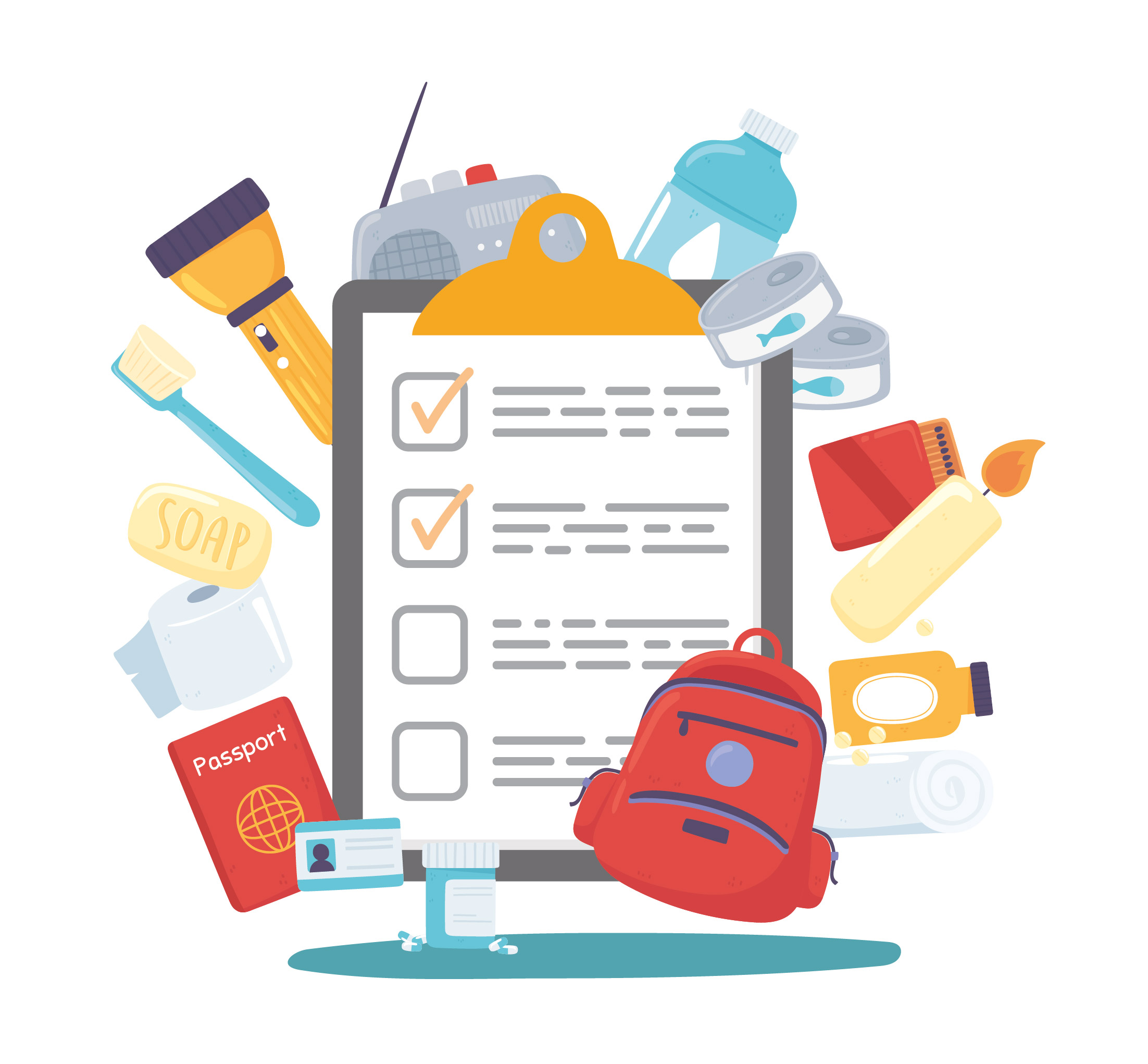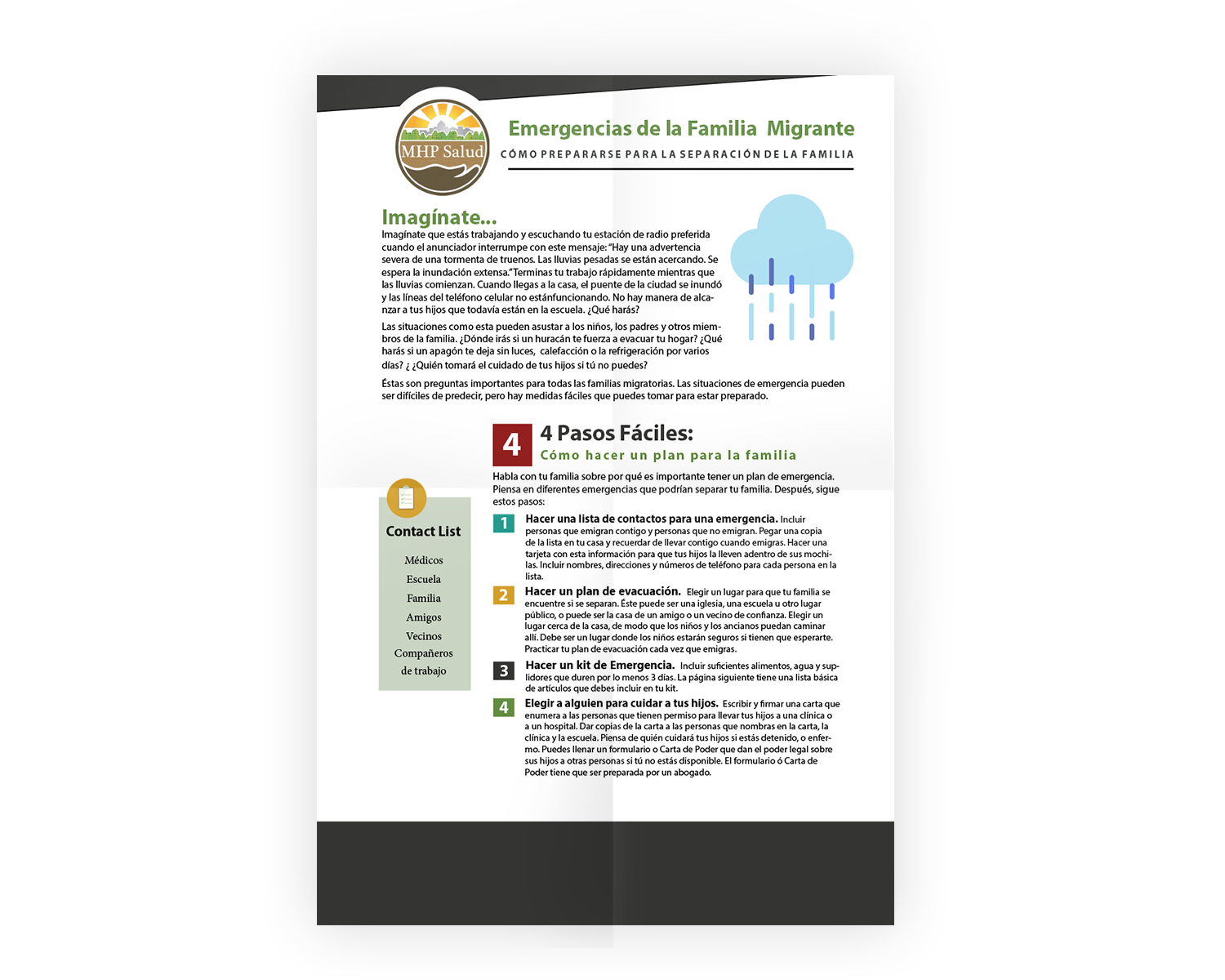Migrant Families Emergencies
How To Prepare for Possible Family Separation ( Habla Espanol? )
Emergency situations can be hard to predict, but there are easy steps you can take to be prepared.
Imagine that you are working and listening to your favorite radio station when the announcer interrupts with this message:
“There is a severe thunderstorm warning. Heavy rains are approaching. Widespread flooding is expected.”
You hurry to finish your work as the rains begin. By the time you get home, the bridge to town is flooded and the cell phone lines are not working. There is no way to reach your children who are still at school. What will you do?
Situations like this can be scary for children, parents and other family members. Where will you go if a hurricane forces you to evacuate your home? What will you do if a blackout leaves you with no lights, heat or refrigeration for days? Who will take care of your children if you can’t?
These are important questions for all migrant families. Emergency situations can be hard to predict, but there are easy steps you can take to be prepared.
4 Easy Steps: How to Make a Family Plan
Talk with your family about why it’s important to have an emergency plan. Think about different emergencies that could cause you to be separated. Then, follow these steps:
Sample Contact List
Include Important Names and Numbers
- Doctors
- Family
- Friends
- Schools
- Neighbors
- Employers
You can locate your family member online using the Online Detainee Locator System.
Call the center where your family member is being detained and ask for the person in charge of immigration detention. Ask for your family member’s inmate number and visitation hours. Only documented people should visit the detention center! Contact an immigration attorney to find out what can be done to help your family member.
Fill out this online form for a referral to an immigration lawyer:
American Immigration Lawyers Association (AILA)
Build Your Emergency Kit
Here is a basic list of items you should include in your kit. Make sure to have enough food, water and supplies to last at least 3 days.

- Waterproof Matches
- Copies of important documents in a plastic bag
- Baby Items
- Items for Pets
- Prescription Medications
- Allergy List
- Insurance Information
- Contact List
- Remember to take your license, ID cards, work permit, passport and birth certificate with you if you evacuate.
- First aid kit
- Blankets
- Cash and Credit Cards
- Water for 3 days, about 1 gallon per day
- Canned Foods
- Can Opener
- Small Battery-powered Radio
- Extra Batteries
Emergency Help for Everyone
Information from Farmworker Justice
Everyone has access to certain immediate, short-term benefits. Check with your nearest One-Stop Center, migrant clinic, or other migrant service providers to find out the local emergency services available. States may also provide food stamps for up to one month to disaster victims, regardless of legal status. Generally, however, more extensive benefits are only for US citizens and persons who are lawfully present in the US.
Available Short-term Benefits
- Soup kitchens & food pantries
- Emergency overnight shelters & battered women’s shelters
- Migrant and community health centers
- Crisis counseling
- Some private charities
Download this Resource as a PDF!
Become a member of our free resource portfolio and get access to this resource and more! Also check out latest article on Emergency Planning Tips for Latino Older Adult Caregivers .
This program is supported by the Health Resources and Services Administration (HRSA) of the U.S. Department of Health and Human Services (HHS) as part of an award totaling $617,235 with 0 percent financed with non-governmental sources. The contents are those of the author(s) and do not necessarily represent the official views of, nor an endorsement, by HRSA, HHS, or the U.S. Government. For more information, please visit HRSA.gov.


